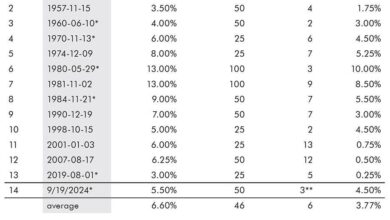South Korea’s SK Group Sells $1 Billion Stake In Vietnam’s Vingroup: Report

📝 usncan Note: South Korea’s SK Group Sells $1 Billion Stake In Vietnam’s Vingroup: Report
Disclaimer: This content has been prepared based on currently trending topics to increase your awareness.
Chey Tae-won, chairman of SK Group.
NTHONY WALLACE/AFP via Getty Images
SK Group, South Korea’s semiconductor-to-telecoms conglomerate controlled by billionaire Chey Tae-won, is said to have offloaded its entire stake in Vietnamese conglomerate Vingroup, according to a report by Korea JoongAng Daily on Wednesday.
SK in 2019 bought a 6.05% stake in Vingroup for about 1.1 trillion won (around $1 billion at the time) amid its Southeast Asia expansion. Vingroup, led by Vietnam’s richest person Pham Nhat Vuong, has interests in real estate, hospitality and electric vehicles. At the time, SK said the two companies would collaborate in areas including the development of infrastructure for information and communication technology, as well as to pursue investments in Vietnam through mergers and acquisitions.
In January, SK disposed of a 1.33% stake in Vingroup for 508.6 billion Vietnamese dong ($19.4 million), according to a Vingroup’s filing to the Ho Chi Minh stock exchange. According to Korea JoongAng Daily, SK has sold its remaining stake in Vingroup and has “recovered its initial investment of 1.1 trillion and then some.” (Disclosure: JoongAng Group, which controls JoongAng Daily, is a licensee of Forbes Media and publishes Forbes Korea.)
As of Wednesday, Vingroup’s shares rose about 17% since SK’s investment six years ago, but Vietnamese dong weakened against the Korean won during the period. SK and Vingroup didn’t respond to a comment request.
Last year, SK also reduced its stake in Vietnam’s Masan Group from 9.5% to 3.67%, six years after the Korean company first invested in the diversified business group.
SK’s divestment in Vingroup comes amid the company’s “portfolio rebalancing” plan to free up 80 trillion won ($58 billion) by 2026 to invest in AI and semiconductors, and fund shareholder return. Since SK announced the overhaul last year, it has been reducing the number of its business units through mergers and asset disposals. Among the moves include the combination of SK Innovation, the parent company of loss-making electric vehicle battery maker SK On, with SK E&S, the energy cash cow for SK.
Other disposals include SK Specialty, a supplier of specialty gases used in semiconductor and display panel productions, which Korean private equity firm Hahn & Co. acquired an 85% stake for 2.6 trillion won in March; SK Rent-a-Car, which was bought by Hong Kong-based buyout firm Affinity Equity Partners for 820 billion won last year.
Meanwhile, U.S. private equity giant KKR was said to be in talks to acquire the waste management arm of energy company SK Ecoplant for 1.5 trillion won, according to the Korean Economic Daily last week. SK is also reportedly seeking to sell its controlling stake in semiconductor wafer manufacturer SK Siltron.
MORE FROM FORBES



